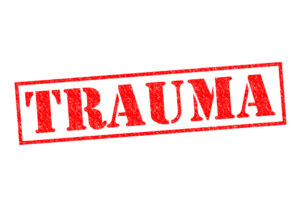 After one endures a traumatizing incident in their life, it can be extremely difficult to know how to move on. Many people experience a feeling that they are living in a dream, or rather, a nightmare, and just can’t seem to wake themselves up. Experiencing traumatic stress after a traumatic incident, is entirely normal, and you shouldn’t feel alone when you are experiencing the stress that follows said incident. Many people out there have gone through similar things, and even if it was a different type of incident they experienced, many times, the traumatic stress symptoms that follow are similar, if not the same.
After one endures a traumatizing incident in their life, it can be extremely difficult to know how to move on. Many people experience a feeling that they are living in a dream, or rather, a nightmare, and just can’t seem to wake themselves up. Experiencing traumatic stress after a traumatic incident, is entirely normal, and you shouldn’t feel alone when you are experiencing the stress that follows said incident. Many people out there have gone through similar things, and even if it was a different type of incident they experienced, many times, the traumatic stress symptoms that follow are similar, if not the same.
What is a traumatic event?
Traumatic events vary, as the trauma that is endured, and felt, and the post stress is subjective among different people. Some examples of traumatic incidents include:
- Natural disasters
- Car accidents
- Shootings
- Finding out you have a life-threatening illness
- An assault (physical assault, sexual assault, robbery, mugging)
- Bereavement
- Military combat
- Terrorist attacks
After a traumatic experience, many people fall into a shock like state, which is very normal. One may experience a mental numbness, a distance with reality, or an inability to accept what has happened. There can be a battle of disconnect with one’s emotions, in that the person is unable to identify how they are feeling. Other emotions will then typically follow as the shock begins to wear off and reality begins to set in. Generally, a mix of emotions will occur, in where one will not be able to identify which one they are feeling, as they seem to be feeling it all. These emotions can include fear, anger, sadness, guilt, helplessness, embarrassment, and sometimes relief that the incident is over, or hope that life can somehow get back to normal. These emotions are normal, and it’s important to recognize what you are feeling.
How to move on…
Moving on takes time. Unfortunately, as a part of human nature, we want a quick fix, but there is no quick fix for moving on after a traumatic event. Here are some things that you should do to move on…
Take some time
It takes time to heal, and you should give yourself that time. Grieving is a part of the healing process, don’t be afraid of it.
Don’t be afraid of your thoughts
Going over what happened in your head is normal, it won’t be easy, but it’s important to face the reality rather than to hide from it.
Ask for support
It’s okay to ask for help in the healing process. Talk to friends, family, or other people who have gone through traumatic events. Talking about it, though it may be difficult, will help you move forward. Don’t be afraid to seek help from a professional at a counseling center in Dallas. They have been trained to help people move on after traumatic events, and know just the right tools you need to take the steps forward to heal.
Try and follow a routine
Getting into a routine can be extremely helpful. Otherwise, people tend to get lost in their depression, and things only get worse from there. Even if you have to take baby steps, try and have some sort of routine on a day to day basis. Start with having regular meals, even if you don’t have much of an appetite, it’s important to keep your body healthy while your emotional and mental health is stressed. Try and add a bit of exercise to your routine as well, it is known to be extremely beneficial, just remember to start slow.
Dealing with post-traumatic stress is extremely difficult. And it can be hard to move forward on your own. Sometimes, you need help to do it, and it’s important to know that it is okay, and completely normal. If you are looking for a trauma therapist in Carrolton, here at LifeWorks we have someone for you. Our caring and understanding counseling experts know what it takes to help you get through this. Contact us today, and let us help you get your life back on track.




